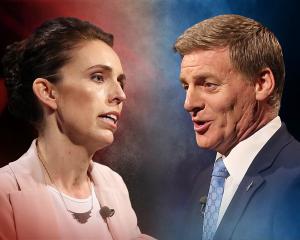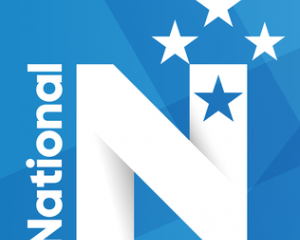The joke doing the rounds of the military has it that there seems to be no spare cash for anything other than hiring expensive consultants to squeeze more money out of the Defence Force's budget to hire even more expensive consultants ...
Those personnel finding that funny will find nothing to laugh about in National's long-awaited white paper on defence.
The consultants have been busy - very busy.
The most staggering feature of the defence review is the plan to extract $400 million in ongoing annual savings from the Defence Force's budget by 2013.
That sum was the product of a "value for money" review of the Defence Force conducted by former State Services Commission head and Telecom chief executive Rod Deane, and Pacific Road Corporate Finance, which specialises in "maximising shareholder value".
The consultants' estimates amount to a budget reduction of between 14% and 17%, depending on whether capital spending is included in the reckoning.
This is a case of robbing Peter to pay Peter, however.
The Defence Force will retain the money to pay for the never-ending list of increasingly pricey items needed to re-equip the three services to the required standard.
This "incentive" will not mean the Defence Force will have to become completely self-funding in meeting the cost of priority items identified by the white paper, such as the purchase of short-range maritime patrol aircraft and the upgrading of the air-defence missile systems on the two Anzac frigates.
Even if the savings target is met, the Government still expects to have to come to the party and put much the same amount of new money into defence as it has done historically.
It has little choice.
The frigate upgrade alone could top $400 million.
National is keen to proceed with that project because it wants to fulfil the white paper's pledge that New Zealand work more closely with traditional allies such as the United States.
The two frigates are a critical element in demonstrating such commitment because they can be easily slotted into a multinational force, be it to patrol the Persian Gulf or deal to Somali pirates, thus making a "valued contribution to coalition operations".
The big question is whether the savings mooted by Dr Deane are really "deliverable" - as the jargon goes.
As much a disciplined public servant as a disciplined military officer, Lieutenant-general Jerry Mateparae, the head of the country's armed forces, duly "welcomed" the release of the Government's blueprint.
He also described the cost-cutting prescription as "challenging" - a word public servants use when they privately think an idea is halfway to la-la land.
Lt-gen Mateparae, however, is understood to have suggested that it was better to set a high target for savings and risk falling a bit short, rather than aiming low and not getting much at all.
Senior defence staff have done their own analysis of Dr Deane's figures and believe they are achievable.
There is said to be strong affirmation in the Defence Force hierarchy that there must be change as advocated by the white paper.
Finding the $400 million is not going to be Lt-gen Mateparae's problem.
He is stepping down as chief of the Defence Force and is about to take charge of the Government Communications Security Bureau.
Making progress in reaching that target will be part of the job performance agreement of his successor.
Under Lt-gen Mateparae's tenure, however, the Defence Force was already keeping one step ahead of Treasury-instigated razor gangs.
Since 2007, the Defence Force has been running a "defence transformation programme" charged with finding "efficiencies" to free up cash.
It came up with savings of up to $100 million.
However, that was not large enough to satisfy the National Cabinet.
Initiating the "value for money" exercise, ministers made it an explicit requirement that the person leading the review not be a current or recent member of the armed forces.
Enter Dr Deane - who was dubbed "Dr Death" during the public service cutbacks of the 1980s.
His report identified a further $250 million to $300 million in savings outside the frontline of the Defence Force.
Some of these will be achieved by closing bases and concentrating operations in a "hub" around the Ohakea Air Force base in the Manawatu.
Many jobs held down by military staff will be be done by civilians.
The possibility of leasing arrangements and contracting out services to the private sector will be explored along with public-private partnerships.
Even the services' brass bands will not be exempt from scrutiny.
To keep the foot on the cost-cutting accelerator, the reforms will be driven by a new civilian chief operating officer, working directly under the aegis of the Chief of Defence Force.
It is noteworthy that the Government is not demanding that Dr Deane's prescription be followed to the letter.
The Defence Force's senior management is being given flexibility to decide how it will go about cutting costs.
The expectation is simply that it just gets on with the job.
A side effect of all this is to shift some of the onus of responsibility for the state of the armed services away from the politicians and into the laps of unelected bureaucrats.
If something goes wrong, the Government will claim it is the Defence Force's fault.
This shake-up, however, seems to have somewhat different motivation than simply National's ideologically driven onslaught on a public service it believes to be bloated with too many staff doing too little.
Other parties might only give passing attention to defence policy.
For all its faults, National's white paper - nearly two years in the writing - is the evidence of how seriously the party treats defence matters.
As much as it might look like simple cost-cutting, the white paper, with its consequent rationalisation of defence bases, property, housing, jobs and so forth, is looking very much like the instrument that creates a modern Defence Force for the 21st century, rather than preserving an outdated one in aspic.
John Armstrong is The New Zealand Herald political correspondent.










